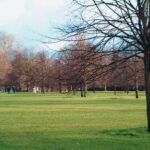The goal of this blog is to make this world a better place. We only have one world, so we need to share one vision when it comes to health, wellbeing and love on this planet. This is my take on world tourism, world peace and world health.
-
World tourism and global health:
I’m a vegetarian and I’ve been promoting the vegan diet for many years while traveling around the world because I believe it’s good for people’s health. But not everyone shares this view. Tim Noakes, a South African sports scientist famous for his promotion of a high-fat, meat-rich diet, says a vegan diet is “incomplete in so many ways”. “In time, a truly vegan athlete will run into trouble unless they are sourcing additional animal-based nutrients – such as vitamin B12, iron, choline and probably high-quality proteins – from somewhere else,” he says.
Dietitian Renee McGregor, who works with international ultra-runners, says that while it is possible to be vegan and a good runner, it needs a lot of careful planning. “In my clinic, many of the athletes that come in with relative energy deficiency have become vegan,” she says, adding that the high intake of fiber more common in a vegan diet can impact the absorption of nutrients such as iron and calcium, as well as displace energy intake.
There are not enough long-term studies to show how vegan diets impact athletic performance, which leaves us with a battleground of anecdotal evidence. Some of the world’s leading long-distance runners swear by the meat-heavy diet, while others are vegan. For Oakes, proving this to the world is what gets her out of bed on cold mornings. “It gives me a reason to get up and train,” she says. “To show what is possible, and to promote what I believe in.”
-
World tourism: managing air pollution makes this world a better place.
The number of health problems linked to air pollution could be higher than thought. According to recent research findings, hospital admissions for different conditions increase as air becomes dirtier. Air pollution has already been associated with a number of health conditions. Results indicate that almost every cell in the body is affected by dirty air. In other words, air pollution is damaging every organ in the body.
“The aim of the new research was to do the most comprehensive study ever conducted. In the study, the researchers were looking at all possible causes of hospitalization that could be linked to air pollution,” said Professor Francesca Dominici. She is a professor at Harvard University and co-author of the study.
The research team analyzed more than 95 million insurance claims made between 2000 and 2012. The patients, who made the claims, were in the US, aged 65 or older. The researchers looked at one particular type of air pollution. This pollution is produced by vehicles and power stations. By analyzing air quality data, they were able to estimate air pollution levels for each patient. The team then compared air pollution levels for each patient during the two days around their hospital visit with levels from other points in time. This approach also takes into account factors such as age, socio-economic status and even obesity.
The results back up previous studies showing a link between short-term exposure to dirty air and conditions such as heart failure, pneumonia and heart attack.
The team’s analysis further reveals that air pollution is linked to more than just hospital visits. The data showed that short-term increases in air pollution were linked to an average annual increase of 634 deaths.
However, the study has limitations. For example, it only includes one type of air pollution. In addition, it only considered outdoor air pollution near the patients’ homes.
What’s more, it does not account for short-term changes in behavior. The patients’ behavior might have varied with air pollution levels. For example, physical activity levels.
“Clearly, there is much still to learn” the researchers write. “The sooner we act, the sooner the world’s population will see the benefits”.
Air quality index readings above 200 are considered hazardous. On Wednesday, 3 January 2020, readings in Canberra reached 7,700.
81 meters tall and 220 tons, the flag mast of Australia’s Parliament House is one of the largest structures in the world. It flies a 22kg Australian flag, which takes three people to change. For the past week, it has been invisible. The flag has flown at half-mast, honoring volunteer firefighters who died attempting to protect their communities from the blazes. For much of the first week of January, the flag has been unseen, hidden by a smoke haze. Canberra, Australia’s capital city, was having the worst air quality in the world.
-
World tourism: reducing noise pollution gives us a better environment.
Scientists found that human noises have a negative impact on natural parks. Also, noise has a negative impact on animal behavior. The natural world is overwhelmed by the noises of human activity. It can happen even in protected wildlife areas, new research has revealed.
High noise levels harm people’s enjoyment of natural parks. Noise also affects wildlife. It is a problem, because it also means that residents cannot enjoy the benefits of parks for both physical and mental health. In addition, animals are less able to rest. Birds are less able to find mates. It is all due to the high noise levels.
Scientists used over one million hours of sound recordings from 492 locations in protected areas in the US in the study. They found that in about two-thirds of places, the noise pollution from human activities was double the background sound levels.
“Next time you go for a walk in the woods, pay attention to the sounds you hear. Listen to the flow of a river, the wind through the trees, the singing birds. These sounds are just as beautiful as the scenery. They also deserve our protection,” said Rachel Buxton of Colorado State University. Buxton was the leader of the research study.
“The sounds of nature make us feel good. They are important for our physical and emotional well-being,” she said. “We actually have research that shows that natural sounds improve our mood, increase our memory retention and restore our senses.”
Animals use noise for many basic functions. For example, animals use noise for communicating danger, finding food and maintaining relationships in social groups, Buxton said.
“So, not being able to hear these sounds has serious consequences.” The impact of noise can run across the entire ecosystems, she said. Sounds of nature also has effects on plants. “Plants can’t hear, but many animals can hear, and they are affected by noise,” said Buxton.
According to the researchers, roads and air traffic create most of the noise. Also, some industries create a high level of noise. For example, mining. In recent years, noise levels doubled in most areas in the US, according to the study. New research on noise pollution in natural areas are needed. Also, laws are needed to protect these areas. Noise harms wildlife around the world. Nature must be protected.
“The most important topics on the planet are world peace, world health and world tourism.”










